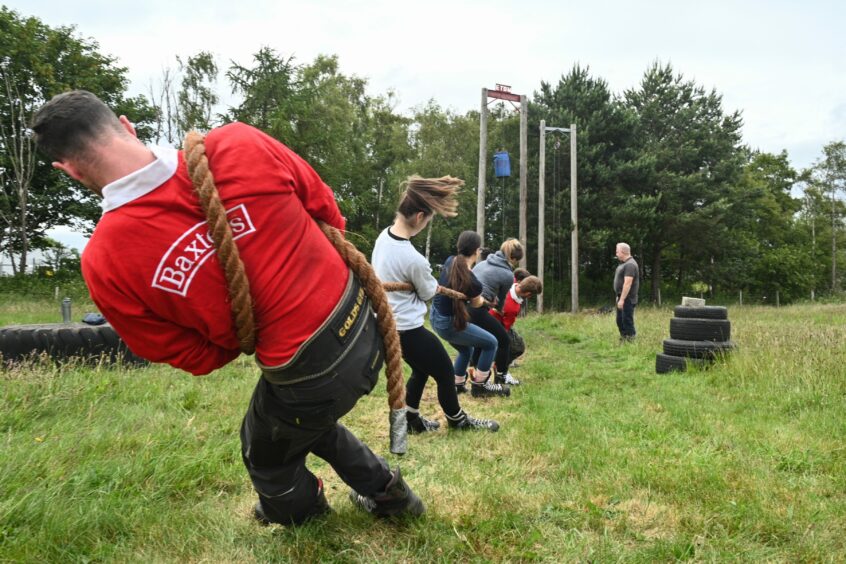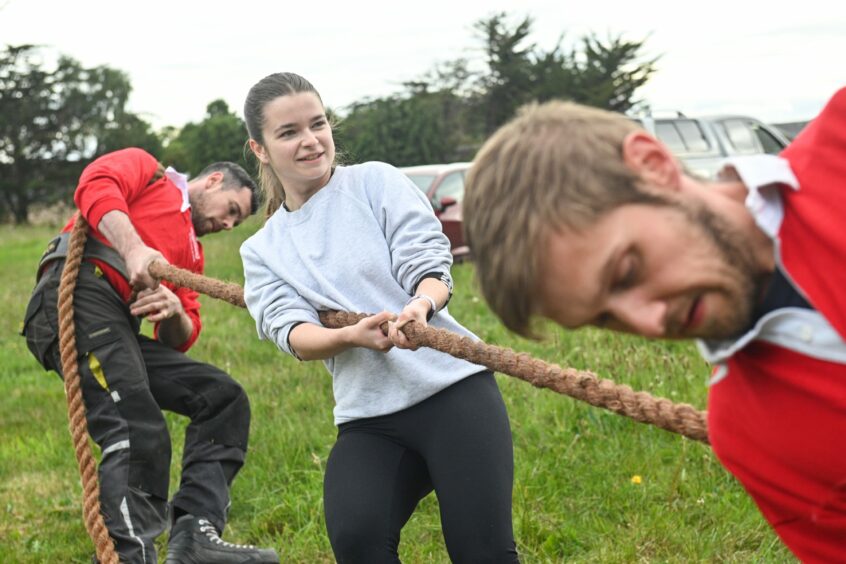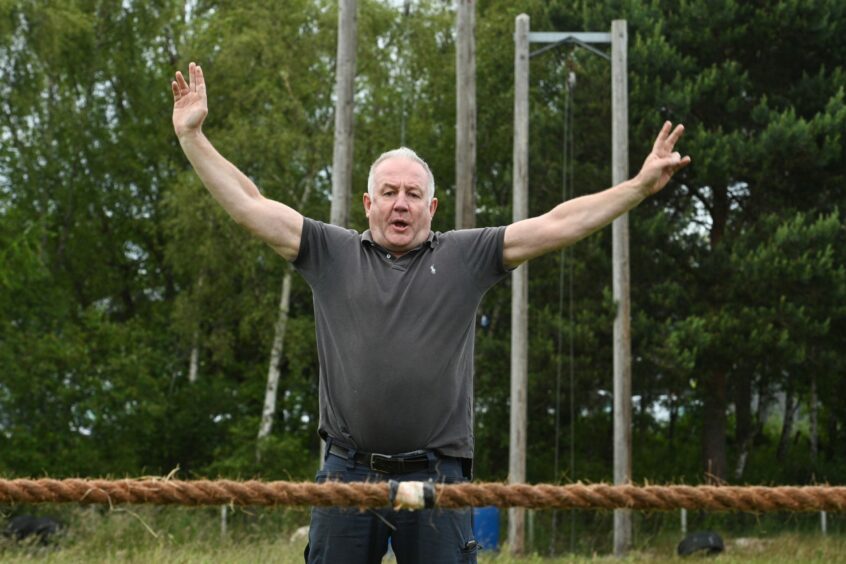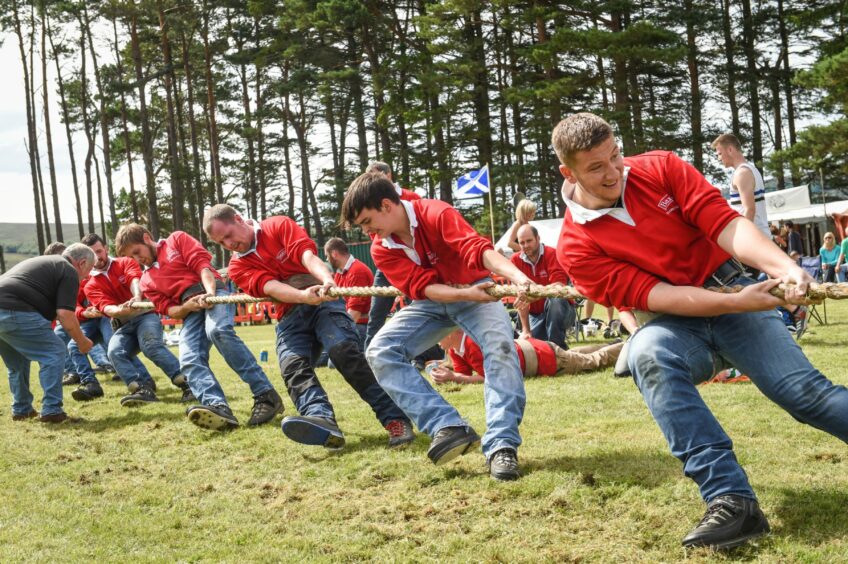It is one of Scotland’s most iconic tests of strength.
The tug o’ war has been a staple at sports days and community events, and always draws in the crowds at Highland Games up and down the country.
But the centuries-old challenge could soon fall from the events programme, as teams are struggling to recruit numbers.
In 2019, the Grampian Highland Games Association agreed to reduce the size of teams from eight to six to ensure the contests could continue.
Even with that leeway, teams are struggling to attract new members. The Elgin team are one of just four that regularly compete at the games now – and sometimes, get default points for being the only entry.
Could you be part of the team?
It is by no means an easy sport. Preparing a tug o’ war team for the Highland Games involves hours of brutal training, ice skates without the skate part and handfuls of sticky resin.
Training starts with the team coating their hands in a sticky mix of resin – this helps them grip the thick rope and avoid rope burn.
They then work together to pull a weighted barrel up a pulley which is easily two storeys tall. Once it reaches the top, it is held then lowered to halfway, then back up, on repeat until you can see arms beginning to shake.
Halfway through the two-hour session, it’s time for two teams to go head to head.
As soon as the referee drops their arms, it’s game on, and the sheer tension on either side of the rope can be felt immediately.
Though it may seem like all it takes to triumph in a tug o’ war is brute strength, there is a lot of technique involved.
Teams must try their best to lie back with the rope and keep their arms as straight as possible – the second you bend with the rope, it’s game over.
Big boots – often ice skates with the blades removed – are also key in digging your heels into the ground and hauling over your competition.
‘Severe lack of competition’
Jamie Wiseman runs the Elgin tug o’ war team and has been competing in the sport since he was 11 having watched his dad and uncles do it all his life.
He said the team is struggling with dwindling numbers and that, even before the pandemic, the number of teams competing each year declines.
There used to be nearly 10 tug o’ war teams in the north and north-east of Scotland, but there are now only four who compete in the games “at best”.
Mr Wiseman said this has an impact on the team and that, at many Highland Games, they will be awarded default points as the only team that has turned up.
“It’s good to be back at the games, but there’s a severe lack of competition,” he said.
“Once you get that win at the games, the buzz doesn’t seem to go away, but that’s hard to actually do.”
The Elgin team has been forced to focus more on representing Scotland at nationwide competitions, as they allow them to do “more tug o’ war in one weekend than (they) get at home all year.”
Get involved
Mr Wiseman wants to encourage others to join their local tug o’ war team to bring some life back into the sport in the Highlands and Grampian.
Other than improving their fitness, he highlighted the other benefits of the sport.
He said: “There’s a big social side to it. We’ve made friends for life in the team, we’ve also got friends in other teams.
“It’s also about keeping fit and winning a medal, everyone likes a medal.”
To get involved, contact Mr Wiseman on the Elgin tug o’ war team Facebook page.





Conversation